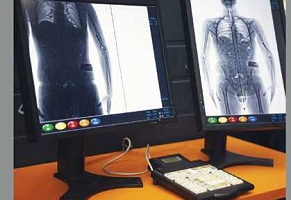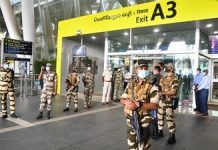The Indian Bureau of Civil Aviation Security (BCAS) has announced that all major airports in the country will deploy body scanners within a year. The regulator has also made it compulsory for other, smaller airports to install body scanners over the next two years.
This move is aimed at accelerating passenger clearance processes and ending manual frisking, without compromising airport security.
New body scanners will enable airport authorities to deal with the threat of non-metallic, plastic explosives and terrorism tools, including chemical, biological and radiation (CBR).
Common metal detectors are often unable to discover these materials. BCAS Joint Director General, Jyoti Narayan, said: “Since the nature of the threat is changing, a lot of technological upgrade is happening in terms of aviation security.
“We have ordered installation of body scanners as normal scanners cannot detect traces of plastic explosives and other threat material.” Narayan announced that BCAS has already installed radiation detection systems to check baggage for CBR and plastic explosives.
BCAS is also deploying CTX machines that can scan hand luggage without having laptops and liquids removed. Narayan added: “We are also installing machines that detect baggage unattended for a long time. These machines will have an alarm system to alert security staff.”
A Behavioural Detection Training Programme has been launched to train crew members to identify suspicious passengers who may pose threats. A mentally ill person recently climbed Mumbai Airport’s wall. To avoid the repetition of such incidents, BCAS has decided to deploy perimeter intrusion detection systems. To increase the security on par with the US, UK and Israel, BCAS is also evaluating its bilateral airport framework with numerous countries








